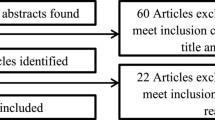Abstract
It is important and urgent to question therelationship between evidence-based medicineand power shifts in health care systems.Although definitions of EBM are phrased as ascientific approach to medicine, EBM is anormative concept: it aims to improve medicineand health care. Both proponents and opponentsuse a normative concept. More particularly,they provide particular views on positions,responsibilities, possibilities, norms andrelationships between professionals, patientgroups, governments and other parties in healthcare and society. From this perspective, wewant to analyse the role of EBM in modernwestern societies. By using citizenshiptheory, we will argue that the role of EBM isnot fixed but depends on the relation betweenstate and society. We will first analyse thefundamental change in western societies duringthe past decades, from modern to post-modernsocieties. Then, we will elaborate a fourfoldmodel of possible relationships between stateand society, and discuss the issue of how EBM mayfit in, by giving some examples of the practiceof EBM in different European countries. On thisbasis, we conclude to consider EBM as a publicforum where proponents and opponents of EBMdiscuss diverse and possibly conflicting waysof changing medicine, health care, and healthpolicy. This requires the incorporation of theperspective of citizens and their socialnetworks, professionals with practical andtacit knowledge, and diverse public views onwhat is regarded as `a good life'. Inasmuch asEBM is expected to be practically relevant, itought to be tied to rather than separated fromthe normative world of emancipated patients anddiverse health care practices. Proponents andopponents of EBM should be prepared to defendthe normative claims and power effects that areinherently tied to any presentation ofevidence.
Similar content being viewed by others
References
Biller-Andorno, N., Lie, R. and ter Meulen, R. (2001) Evidence-Based Medicine as an Instrument for Rational Health Policy. Discussion paper presented at the EVIBASE Workshop, Goettingen, September 28-29.
Biller-Andorno, N. and Karageorgiou, A. (2001) Country Report on Evidence Based Medicine in Germany. Paper presented at the EVIBASE State-of-the-Art Workshop Maastricht, February.
Comments by Prof. D. Dickenson, Prof. M. Denis, R. ter Meulen. (2002) Workshop EVIBASE, University of Bergen, 27-28 May.
Dickenson, D. and Ashcroft, R. (2001) Country report on Evidence-Based Medicine in the United Kingdom. Paper presented at the EVIBASE State of the art workshop, Maastricht, February.
Gehandicaptenraad (1999) Strategisch beleidsplan Gehandicaptenraad. Ede: Gehandicaptenraad.
Gunsteren, H.R. van. (1998) A Theory of Citizenship: Organizing Plurality in Contemporary Democracies. Oxford/Boulder, CO.
Hilhorst, P. (2001) De wraak van de publieke zaak. Amsterdam: Uitgeverij de Balie.
Hirst, P. (1997) From Statism to Pluralism. London: UCL Press Ltd.
Houten, D. van. (1999) De standaardmens voorbij–over zorg, verzorgingstaat en burgerschap. Maarssen: Elsevier/De Tijdstroom.
Klazinga, N. (2001) Van algemeen naar bijzonder–vijf variaties op een misverstand. In P. Bossuyt, and J. Kortenray (Eds.), Schaatsen op dik ijs–Evidence-based medicine in de praktijk (pp. 79–89). Amsterdam: Boom.
Kruijff, A.F. and Schreuder, R.F. (1999) Chronisch zieken en scenario's genetica. Rapport STG, Zoetermeer.
Muir Gray, J.A. (1997) Evidence-Based Health Care–How to Make Health Policy and Management Decisions. Edinburgh [etc.]: Churchill Livingstone.
Offringa, M., Assendelft, W.J.J. and Scholten, R.J.P.M. (2000) Inleiding in Evidence-Based Medicine. Houten/Diegem: Bohn Stafleu Van Loghum.
Sackett, D.L., Rosenberg, W.M., Gray, J.A., Haynes, R.B. and Richardson, W.S. (1996) Evidence-Based Medicine: What It Is and What It Isn't. BMJ 312, 71–72.
Sepers, C. and ter Meulen, R. (2002) Ethical Aspects of EBM and Allocation in the Netherlands: Selected Issues from Expert Interviews. Paper presented at the EVIBASE workshop, University of Bergen, May.
Wigge, P. (2000) Evidenz-basierte Richtlinien und Leitlinien–Qualitätssicherungs-oder Steuerungs-instrumente in der KGV? MedR (Heft 2), 574–585.
Author information
Authors and Affiliations
Rights and permissions
About this article
Cite this article
Vos, R., Houtepen, R. & Horstman, K. Evidence-Based Medicine and Power Shifts in Health Care Systems. Health Care Analysis 10, 319–328 (2002). https://doi.org/10.1023/A:1022908025898
Issue Date:
DOI: https://doi.org/10.1023/A:1022908025898




